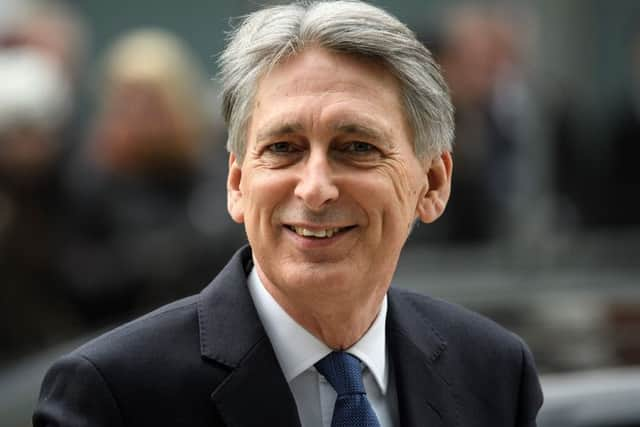Budget 2017: What do the plans mean for Scotland?


Mr Hammond warned that Britain still faces a tough road ahead in managing its debt and deficit while maintaining that the country could make a success of Brexit when Article 50 is triggered to leave the European Union.
He said that he wanted to provide a strong and stable platform for the country to move towards a brighter future.
Advertisement
Hide AdAdvertisement
Hide AdThe Chancellor unveiled a number of measures that are sure to be controversial, including a new way of funding schooling in England and Wales and changes to self-employment tax rates.


He unveiled better than expected figures this year for growth, although a dip is expected to coincide with Britain leaving the European Union.
But how did the Chancellor’s big announcement look for Scotland?
We look at just some of the headlines affecting Scottish people in the Budget speech.
Help (of sorts) for North Sea Oil


The North Sea oil and gas industry has been struggling for a number of recent years, with the fall in price costing a number of jobs in the crucial sector.
As the reserves that currently remain dwindle, new ways of getting the most out of this national resource are growing in importance.
Decommissioning old fields is an expensive business and the industry has been seeking tax relief to help them cope with the burden.
But the measures that were announced by Mr Hammond may have fallen short of what industry groups expected, and that local politicians had demanded.
Advertisement
Hide AdAdvertisement
Hide AdThe Chancellor said that a discussion paper will be presented to the House of Commons after a panel of experts investigates the issue.
Mr Hammond said that the group will look into whether the use of tax incentives will help operators become more productive.
North East MSP Callum McCaig, who had earlier called for real help for the industry, tweeted after the Budget: “Chancellor announces a discussion on support for oil and gas. Not sure a chat will help – some action certainly would. Missed opportunity.”
Self employment tax burden to rise
There is already a train of thought among analysts that most of the announcements (especially on Free Schools) are designed to keep the tax changes off the front pages and off the minds of indignant backbenchers.
But there is already a backlash on the changes announced by the Government that will see the National Insurance contributions of self-employed people rise.
The amount paid by employees, rather than those who work for themselves, is a disparity in the tax system that needs addressed, according to Mr Hammond.
Class 4 NI contributions for those in self-employment will increase by 1 per cent to around 10 per cent from next year, and will increase to 11 per cent the following year.
Scotland has seen a higher than average increase in the number of people who are self-employed in the years since the financial crash of 2007/8.
Advertisement
Hide AdAdvertisement
Hide AdSelf-employment has risen by 11 per cent in the last eight years, with 300,000 jobs in Scotland being held by self-employed people.
With those numbers of people being involved in the tax changes, expect a furious backlash against the plans in Scotland.
More money (and a dig at indyref2)
The Chancellor delivered a Budget statement that was littered with jokes, including digs at himself and Labour politicians.
This came to the fore most when he announced an increase in the grant that is given to the Scottish Government to manage devolved issues.
After revealing that Holyrood would be given £350m more in their settlement, Mr Hammond gestured towards the SNP benches expecting some kind of gratitude.
Unsurprisingly, it was not forthcoming. The party later hit back by noting that Scotland is facing a decade of budget cuts from Westminster, which they say adds up to a near £3bn real terms cut.
Mr Hammond concluded his section on the devolution settlement (which involved extra money for Wales and Northern Ireland) by wryly adding: “This proves that we are stronger together in this great United Kingdom.”
It’s a sign that he is ready to take on the SNP Government over their plans for a second vote on seperation.
